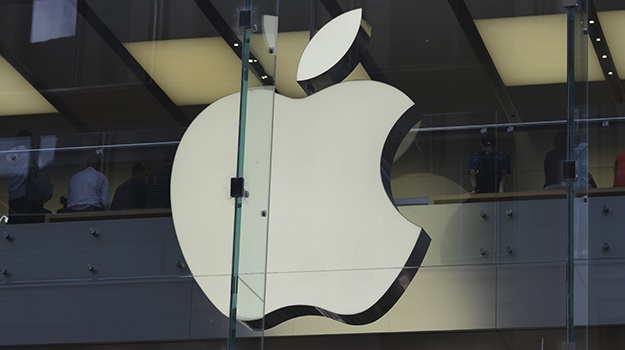
- Apple has won an appeal at the European Union's second-highest court, the European General Court, and does not have to pay Ireland €13bn in back taxes.
- The appeal overturns a ruling made four years ago, which found that Apple had been given tax breaks illegally.
- But Alex Webb says a universal tax regime is necessary, and will be in the interest of both governments and corporates.
There’s clearly something wrong when a government rejects the opportunity to levy 13 billion euros in corporate taxes and an international court says it is right to do so.
The European General Court’s Wednesday ruling in favor of Apple Inc. and Ireland and against the European Commission, which had been trying to force the tech giant to pay the island nation that much in back taxes, is a reminder that the global tax regime is not fit for purpose.
Back in 2016, the Commission said Ireland’s lenient approach to taxing Apple between 2003 and 2014 constituted illegal state aid. On Wednesday, the General Court decided the competition authority failed to demonstrate that Apple benefited from an unfair advantage. The Commission is likely to appeal the ruling, but if the higher European Court of Justice proceeds to absolve Apple and Ireland of any misdeeds, then it would seem to underscore the problems within the system.
The ruling comes against a backdrop of tense discussions to find an international solution to the core issue: the way that multinationals, not least the US West Coast technology giants, are able to shift profits to low-tax jurisdictions such as Ireland.
After years of wrangling, the Organization for Economic Co-Operation and Development proposed a shake-up last year. Countries would have the right to tax a share of the profits that were generated on their soil, even if the companies had no physical presence there. The goal is to ensure that more taxes are paid where an iPhone is sold or a Facebook ad is seen, rather than elsewhere.
Lamentably, the US threw the plans into disarray in June by backing out of the talks. As long as Donald Trump is president, further progress seems unlikely.
The lack of an international consensus has meant that countries including the UK, France, Italy and Spain have ploughed ahead with unilateral policies on digital taxation. For all of the problems with such an approach, it may accentuate the urgent need for an international consensus.
It’s actually in companies’ interest for there to be a universal tax regime. Otherwise, they risk being taxed twice on the same income: on the revenue abroad, and on the profit in the country where they are domiciled, for instance.
The current lack of consensus leaves gaping loopholes. Apple had long argued that its overseas revenue, much of which was funneled through Ireland, would be taxed as soon as it was repatriated to the US. But only after US tax reform went into law in 2017 did it become certain that Apple would indeed ever repatriate that income. Otherwise, it would stay sitting in offshore accounts, largely untaxed. The commission tried to use current OECD rules in its case against Apple; Wednesday’s court decision said it failed to apply those rules correctly.
Law changes in Ireland mean that the process by which Apple was able to reduce its tax exposure prior to 2014 no longer exists. But the country was fighting the case because it’s still considered to have an amenable corporate tax regime. It doesn’t want to lose that dubious accolade given it’s attracted a horde of tech firms’ European headquarters. That the EU’s second-highest court now says that it was all above board is an indictment of a status quo that needs changing.
Alex Webb is a Bloomberg columnist. Views expressed are the author's own.




 Publications
Publications
 Partners
Partners











